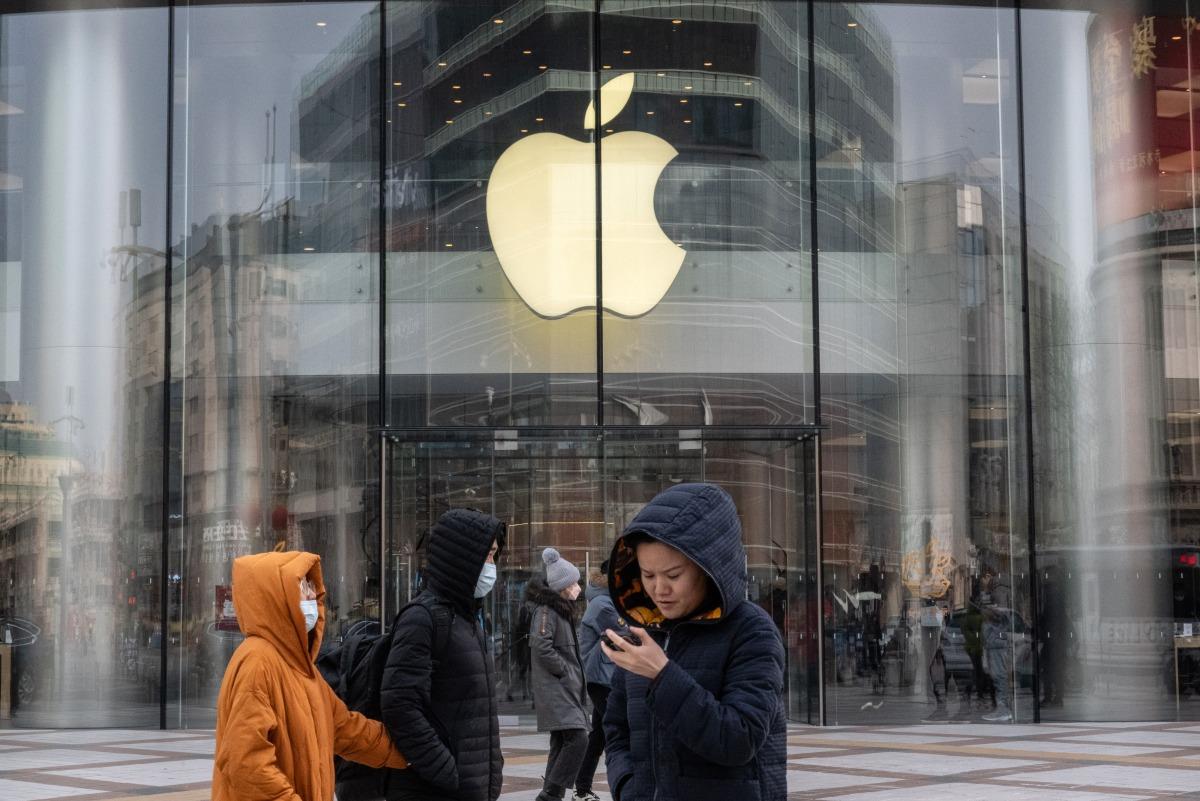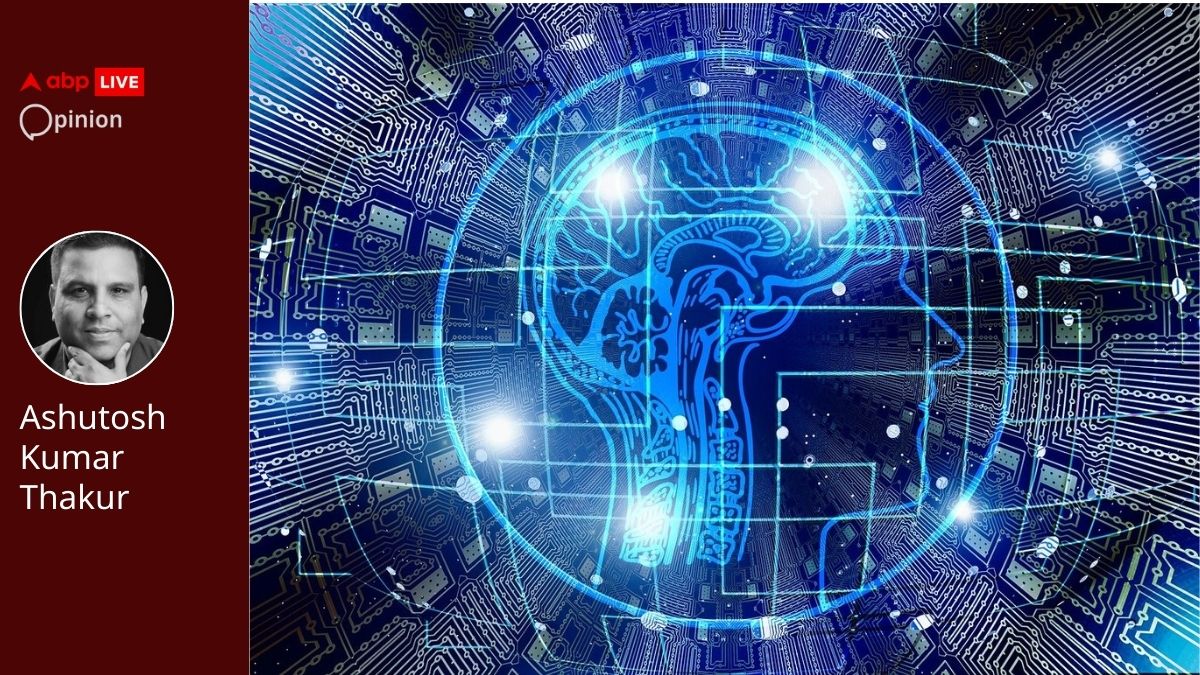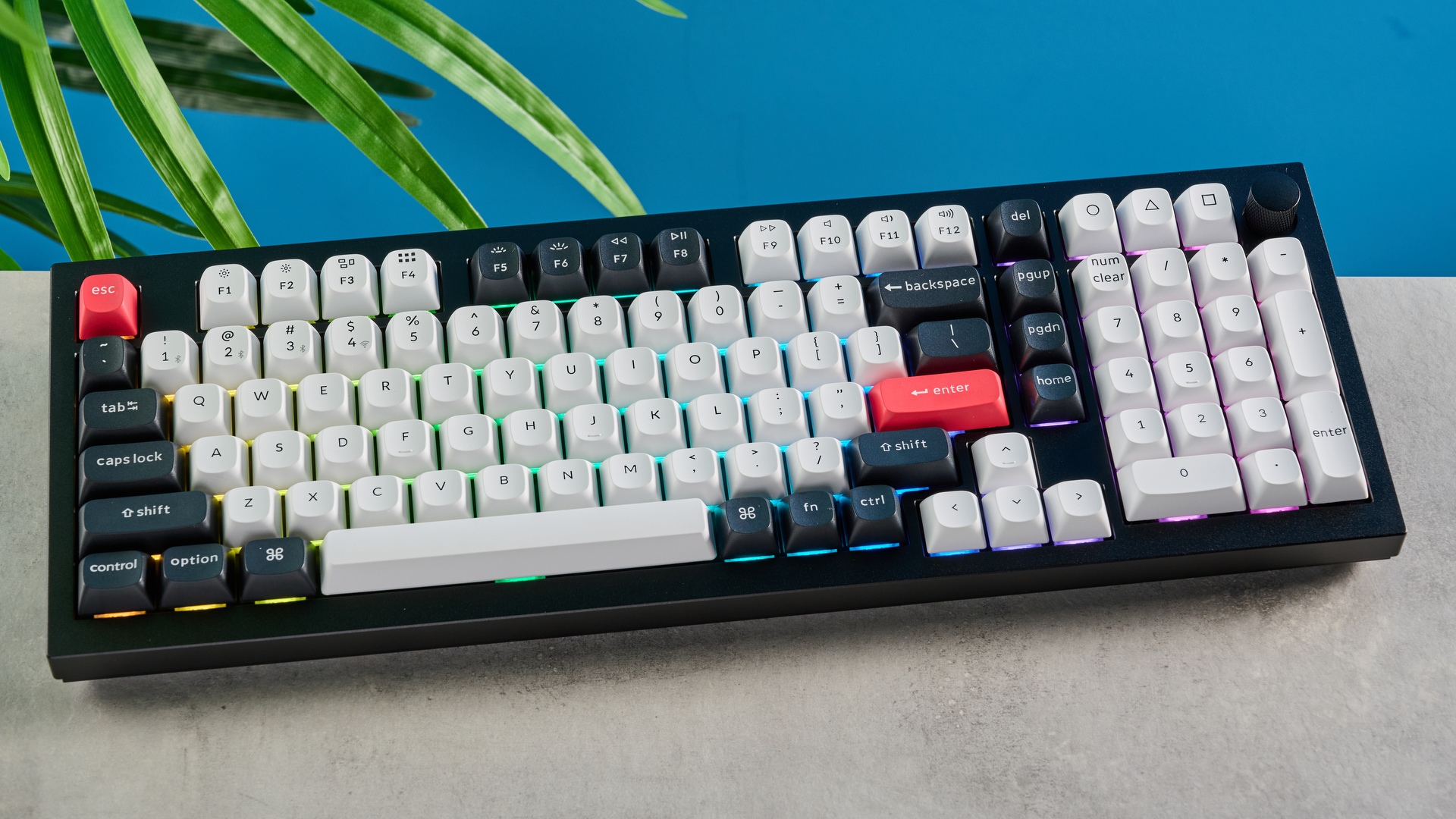The Trump administration has spared smartphones, computers and other electronics from what the White House calls "reciprocal” tariffs, a move that experts said Saturday will grant U.S. technology companies like Apple a reprieve from the steep hikes imposed on China.
The directive, issued by U.S. Customs and Border Protection, identifies nearly two dozen exemptions, including chips, flash drives and TV displays.

President Donald Trump directed there be refunds for any duties that were collected on the exempted products since April 5. The announcement follows Beijing's raising tariffs on U.S.
goods to 125 percent in response to Trump's escalating trade war, with China's State Council warning Friday that it will "fight to the end.” The exemptions also come days after U.S.
Trade Representative Jamieson Greer told senators that "the president has been clear with me and with others that he does not intend to have exclusions and exemptions.” In response to questions Saturday, White House press secretary Karoline Leavitt said the United States cannot rely on China to manufacture critical technologies. "That's why the President has secured trillions of dollars in U.
S. investments from the largest tech companies in the world, including Apple, TSMC, and Nvidia,” Leavitt said in a statement. "At the direction of the President, these companies are hustling to onshore their manufacturing in the United States as soon as possible.
” Spokespeople for Nvidia declined to comment. The Consumer Technology Association, a trade group whose members include Apple, Lenovo and Samsung, had no comment. Apple and two of the world's most significant computer chip companies, Nvidia of California and Taiwan's TSMC, have announced major investments in the United States under the Trump administration.
But for Apple and TSMC, which makes computer chips for Nvidia and Apple, it would take years to materially expand their ability to make products in the United States. Apple CEO Tim Cook and his predecessor, Steve Jobs, have said for at least 14 years that the United States lacks the know-how, employment skills and component supply chain robustness needed to manufacture the more than 200 million iPhones sold each year worldwide. "There is a better chance of me playing in the Masters this weekend [than] Apple making iPhones in the U.
S. the next few years; the math and complexity makes it impossible,” said Dan Ives, a technology stock analyst with Wedbush Securities. The exemptions for Chinese-made phones and laptops have already raised questions about why some U.
S. businesses were given tariff breaks and others, like apparel and furniture retailers, must still pay a whopping tariff rate on Chinese-made goods. "Trump's on-and-off-again tariffs leave the door wide open for billionaire corporations to suck up for corrupt deals - while leaving small businesses, farmers, and families out in the cold,” Sen.
Elizabeth Warren (D-Massachusetts) said on X. Warren and other Democratic lawmakers sought on Saturday to connect the exemptions that will benefit Apple to the $1 million in donations that Cook and other Silicon Valley behemoths each gave to Trump's inaugural fund. "If you're a company that can donate money to Donald Trump, if you're a company that can afford the big lobbyists, you don't have tariffs applied to you,” Sen.
Chris Murphy (D-Connecticut) said. "More evidence that the tariffs have nothing to do with rebuilding American jobs.” On Saturday, a clip shared widely on X showed Commerce Secretary Howard Lutnick telling CBS News on April 6 that the factories that "make iPhones, that kind of thing is going to come to America” under Trump's trade policies.
The new exemptions appear to undermine that reshoring effort, but will probably be welcomed by makers of electronics. Apple for instance has faced the prospect of a new import tax of roughly $700 or more on each $1,000 iPhone imported from China, based on tariff rates the White House increased to at least 145 percent. For now, Apple won't have to decide whether to take a hit to its profits or possibly raise prices significantly for iPhone buyers.
It's not the first time Trump has exempted technology products, like those made by Apple, from tariffs. During his first term in the White House, Trump exempted Apple from tariffs on roughly $200 billion worth of Chinese imports. At the time, Cook convinced the administration not to impose tariffs on products the company sells, including the iPhone, AirPods and Apple Watch.
The White House instead hiked tariffs on consumer products such as air conditioners, spark plugs, furniture and lamps. The new exemptions also include graphics processing units, or GPUs, which power the artificial intelligence algorithms behind ChatGPT and other AI chatbots, said Divyansh Kaushik, a vice president at Beacon Global Strategies, a think tank, who advises tech companies on geopolitical risks. Kaushik said the tariff hike would have made it more expensive for U.
S. companies to build AI models, putting the country at a disadvantage and without the domestic manufacturing to match overseas production. "These take a lot of capital investments, and the supply chains are very complex,” said Kaushik, pointing to the Chips Act, which dished out $52 billion in subsidies to build computer chip factories and research facilities in the United States.
"It takes time, and I think it also takes incentives.” MENAFN13042025000063011010ID1109424597 Legal Disclaimer: MENAFN provides the information “as is” without warranty of any kind. We do not accept any responsibility or liability for the accuracy, content, images, videos, licenses, completeness, legality, or reliability of the information contained in this article.
If you have any complaints or copyright issues related to this article, kindly contact the provider above..
Technology

Phones, Other Electronics Exempt From New Tariffs, Trump Administration Says

(MENAFN - The Peninsula)The Washington Post The Trump administration has spared smartphones, computers and other electronics from what the White House calls "reciprocal– tariffs, a move that ...















